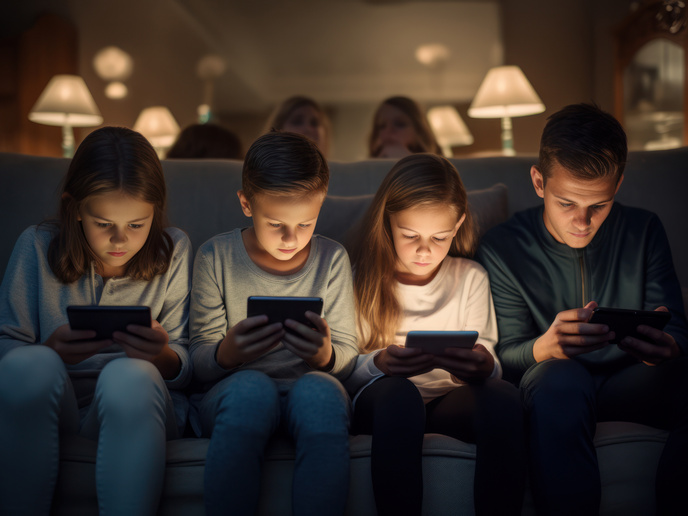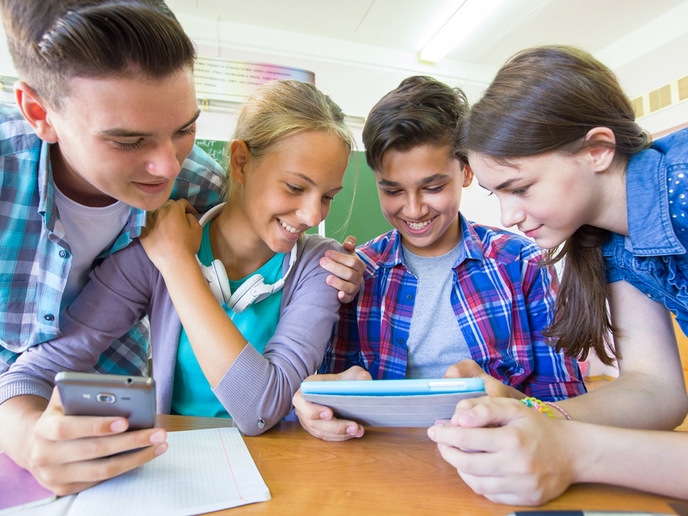Pressures of parenting in a digital age – an anthropological snapshot
While quantitative data on children’s screen use and engagement with digital media exists, there is little qualitative research into how it has affected family dynamics. There is also little on the impact of screens on children’s and parents’ well-being and parents’ views on education and digital literacy. “The idea was to get a snapshot of how families actually live with screens or devices, with digital media, using qualitative ethnographic perspectives,” explains Nofit Itzhak, a psychological anthropologist and postdoctoral fellow at the Department of Anthropology, Philosophy and Social Work(opens in new window) at the University of Rovira i Virgili(opens in new window) in Tarragon, Spain. Most research around digitisation tends to be based on quantitative surveys, such as on screen time. These include the EU-funded Children Online project CO:RE. But anthropologists can provide contextualised, rich data about families’ use of screens or devices, Itzhak notes. With the support of the Marie Skłodowska-Curie Actions(opens in new window) programme, the TecWell project used observational techniques in educational settings and in the home, together with interviews with parents.
Devices as babysitters
“These days, the nuclear family frequently doesn’t have the support of the extended family or other social networks,” Itzhak remarks. For many families, screens and devices are used as ‘babysitters’ keeping children safely occupied and helping parents to cope with the increased demands of modern life. Itzhak found relatively little engagement with screens or devices together, as a family. “But at the same time, the screen is regarded as a ‘bad babysitter’ tugging at children, pulling them in,” Itzhak says. “A lot of parents feel this is damaging their children although they are not always clear why.”
Impact on children’s well-being
Conversations with parents revealed that screens have become part of the broader anxiety about good parenting and education. There is general consensus that screens are bad for children, but with little elaboration on why, Itzhak explains. “In cities children can’t just run outside and play with their siblings or friends, at least not as much as they used to,” she adds. “And this contrast between the physicality of play outside and the more sedentary, cognitive engagement with screens is invoked quite often by parents, at times with a sense of nostalgia about a lost idyllic past.” “At older ages we also get the threat of the internet or social media as a social space where parents can’t control or have some sense of who or what their children interact with,” she says, pointing to “parents’ sense or fear of losing control over the child’s conduct in ways that can endanger them.”
Parental anxiety about an unpredictable future
Use of digital media is also feeding into parents’ anxiety about the future and how to prepare their children for it. “The environmental crisis, the fact that we are living through a fourth industrial revolution, with the rapid and, so far, mostly unregulated introduction of cyberphysical systems, of artificial intelligence into our lives: things seem to be changing very rapidly,” Itzhak notes. “Many parents are looking for more information, for advice: How should I raise my child?” “Some parents’ reaction to increasing digitisation and the uncertainty of the future is to want their kids to master this technology, like learning how to code or taking robotics classes.” “Parents with relatively little digital literacy tend to want their children to acquire it. They see the value in it and they tend to be less afraid of their children using the tech.”
Digital literacy and better information
Better digital literacy as addressed in the EU-funded ySKILLS project and AI literacy for both children and parents could help relieve these anxieties and improve well-being. Supporting parents with information and reliable resources, including on research, to reduce their sense of anxiety and helplessness is important, according to Itzhak. “It is not just about digital literacy, but about how we promote digital well-being for parents, for families. Parents need more help to live through the digital age without losing their minds or feeling they are constantly at fault,” she adds.







